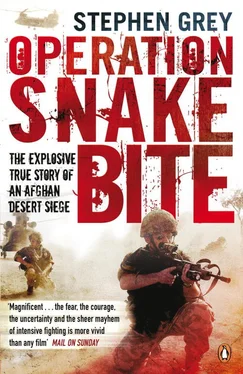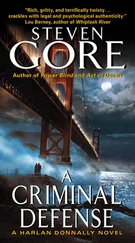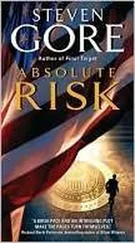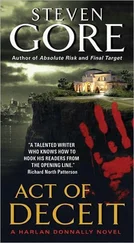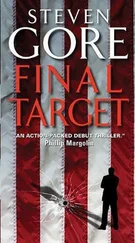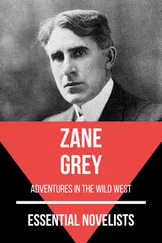The biggest threat to life, time and again, proved not to be the stand-up fight, although there were plenty of those, but mines and IEDs. Throughout the winter, no British soldier died from a gunshot wound. All who died from hostile action were killed by blasts. It partly reflected smarter tactics by the Taliban but it was also just the season. When the vegetation stood tall in the irrigated fields, the Taliban could hide and ambush from close quarters. In the winter, bombs made more sense.
Towards the end of February, the 2 Yorks’ C Company lost one of their team working with the Royal Marines in Kajaki. Corporal Stephen ‘Damo’ Lawrence, a twenty-five-year-old from Scarborough, was killed when he peered through a hole in a wall of a compound he was trying to clear and detonated a booby-trapped bomb. Some of the soldiers reckoned they heard him shout, ‘Man down,’ before he lost consciousness. That death shook the men hard. Private Gary McCabe, a twenty-year-old from Billingham, had grown close to Lawrence during their time in Kajaki, which for those soldiers who wanted to fight, he said, had been the place to be. ‘It’s sort of a mad feeling cos I never wanna go back again but I miss the place.’ When Damo was blown up, in front of his eyes, he had had enough. That night, and for nights afterwards, he cried himself to sleep, ‘and I’m not ashamed to say it,’ he said. ‘I never wanted to come home so bad after that.’
The pressure at Kajaki seemed relentless at times. When Royal Military Police investigators returned to check out the scene of Lawrence’s death, two Royal Marines, Corporal Oliver Yates and Marine Ben McBean, were injured when another IED went off in a neighbouring compound. McBean, who lost an arm and a leg, ended up travelling home on the same flight as Prince Harry.
Then in the final days of the Royal Marines’ time at Kajaki, a young officer, Lieutenant John Thornton, and a marine, David Marsh, were killed by a mine. They were driving the usual thin-skinned WMIK Land Rover. On a fire support mission, Thornton followed a path already cleared by soldiers with metal detectors. But, for some reason, they had missed the mine.
With photographer Nick Cornish I visited the marines of Alpha Company at Inkerman further down the Helmand River just the week before the two Kajaki deaths. The mood was already sombre there after the recent death of one of their number, Corporal Damian ‘Dee’ Mulvihill, who was also killed in a mine strike.
A camp like Inkerman was there as a soak for Taliban attacks so that fighting would stay out of Sangin district centre and reconstruction could finally begin there. Upriver from Inkerman to Kajaki – nineteen miles of green zone – it was still all enemy territory.
There seemed something ritualistic to Inkerman’s defence line. Perched on the edge of the desert, the base overlooked the fertile land towards the river but could not hope to dominate it all. Slipping past to attack Sangin was a simple matter when the Taliban chose to do so. ‘We are like a tethered goat,’ said one marine presciently. ‘We let them attack us here so they don’t need to attack us in the town.’
South of Sangin, FOB Robinson performed the same function. Home to Task Force 32, the US Green Berets, it was garrisoned by what became 40 Commando’s Echo Company. It was outside Robinson on Christmas Eve morning that Marine Mark Ormrod trod on a mine. He felt everything go numb like pins and needles. His first words to a medic were: ‘No shit; I think my dancing days are over.’ Ormrod lost both legs and an arm. It was a medical feat he stayed alive. When he woke up back in England he proposed to his girlfriend, and she accepted.
Ormrod’s survival wasn’t the last miracle near Robinson. On 9 February 40 Commando’s Recce Platoon was out on night patrol when Lance-Corporal Matt Croucher hit a trip wire linked to a grenade. Before it exploded, Croucher, a reservist from Birmingham who in civilian life was a director of a security firm, dropped to the ground and covered the grenade with his rucksack. The batteries inside blew into the air like Roman candles and his body armour was peppered with shrapnel. But his only injury was a bloody nose. Croucher was later awarded the George Cross for his actions that night: the highest award for gallantry not in the presence of the enemy.
Further south from Robinson was a 10-mile stretch of hostile green zone including the village of Heyderabad, which was regularly attacked by Task Force 32. After one of the Green Berets was killed by an IED, one of them allegedy took his revenge in Heyderabad by executing a villager, cutting off his ear and keeping it as a trophy. Master Sergeant Joseph D. Newell was later officially charged by the US military with murder and desecration. (His case had yet to be tried by the time this book went to press.)
There was worse. On 18 March a Task Force 32 strike operation using a Spectre gunship succeeded not only in targeting a Taliban council-of-war but in killing an estimated nineteen civilians, including a family of eleven that was entirely wiped out, except for a ten-year-old now made an orphan. 40 Commando’s Delta Company learned of the tragedy when a truck with the victims pulled up outside their base. For some of the marines this was the last straw.
For all these troubles, there was a feeling in the brigade they were making some creeping progress, not only in the work of slowly building up Musa Qala, but in all the towns the British held.
In Sangin, the Bravo Company commander, Major Dan Cheesman, had his own special measure of success. In his entire six months, he never dropped a single bomb from an aircraft round the town. It was something he could tell the people at the shuras , a measure of how he was on their side and how things were changed. Holding back from using aircraft and heavy weapons demanded self-control. It was not always popular.
When 40 Commando returned from Afghanistan to their camp in Taunton, Somerset, the progress in Sangin, albeit in small measure, gave them a way of explaining to their families the reason for all the fighting. While there were exciting ‘dits’ (stories) of fighting to be swapped, killing a lot of Taliban did not seem like much of a measure that justifed the blood and sacrifice. Not to your family anyway.
Birrell’s 40 Commando had lost three men on the tour, and twenty-six men got very serious wounds. When families asked, ‘Was it worth it?’ his response was: ‘I can’t tell you yet. It was too early. ‘In thirty years’ time we’ll know if it was worth it, if Afghanistan has changed.’
But they had at least made a difference in Sangin, he said. ‘We built the new school, there was roads reconstruction, a bazaar that was thriving, and the fact that towards the end of the tour on Afghan Day there were thirty-three Afghan flags flying when we couldn’t buy an Afghan flag when we first arrived.’
The boys had wanted a fight. ‘They wanted to test themselves, to find out if they’d got what it took.’ They found they had what it took, he said. They had their test. A month before Mulvihill was killed outside Inkerman, he said to Birrell: ‘Right, sir, that’s enough. I’ve had all the fighting I need to have now. If you could get it to stop, we’d much appreciate that.’ It was just a joke. But his men understood that their combat was for the good of peace elsewhere.
Birrell kept a picture of girls getting taught inside a classroom in Sangin. ‘And these little girls walk daily past the Afghan National Police, who threatened to rape them and slit their throats if they went into that school. But they still came because they trusted the British and they trusted the security environment we had given them.’
There were qualifications to that story. Rebuilding Sangin was going to require some serious investment and technical expertise. But it was painfully hard to get anyone up to even look at the place. Sangin only got a Foreign Office adviser towards the end of March, and health and safety rules that applied to civilians meant it was hard for such advisers to leave the base and visit any projects. Getting Afghan officials up to Sangin was equally difficult. The roads from Lashkar Gah were not safe.
Читать дальше
